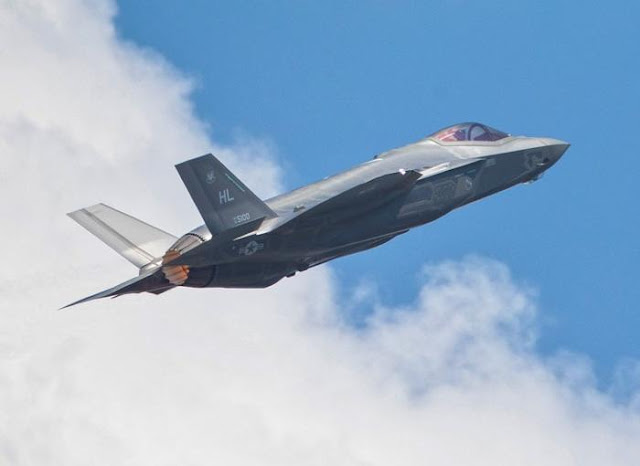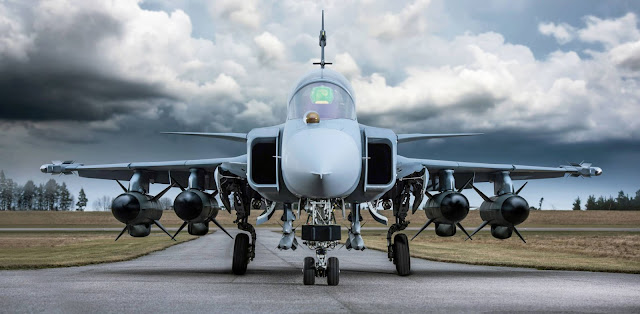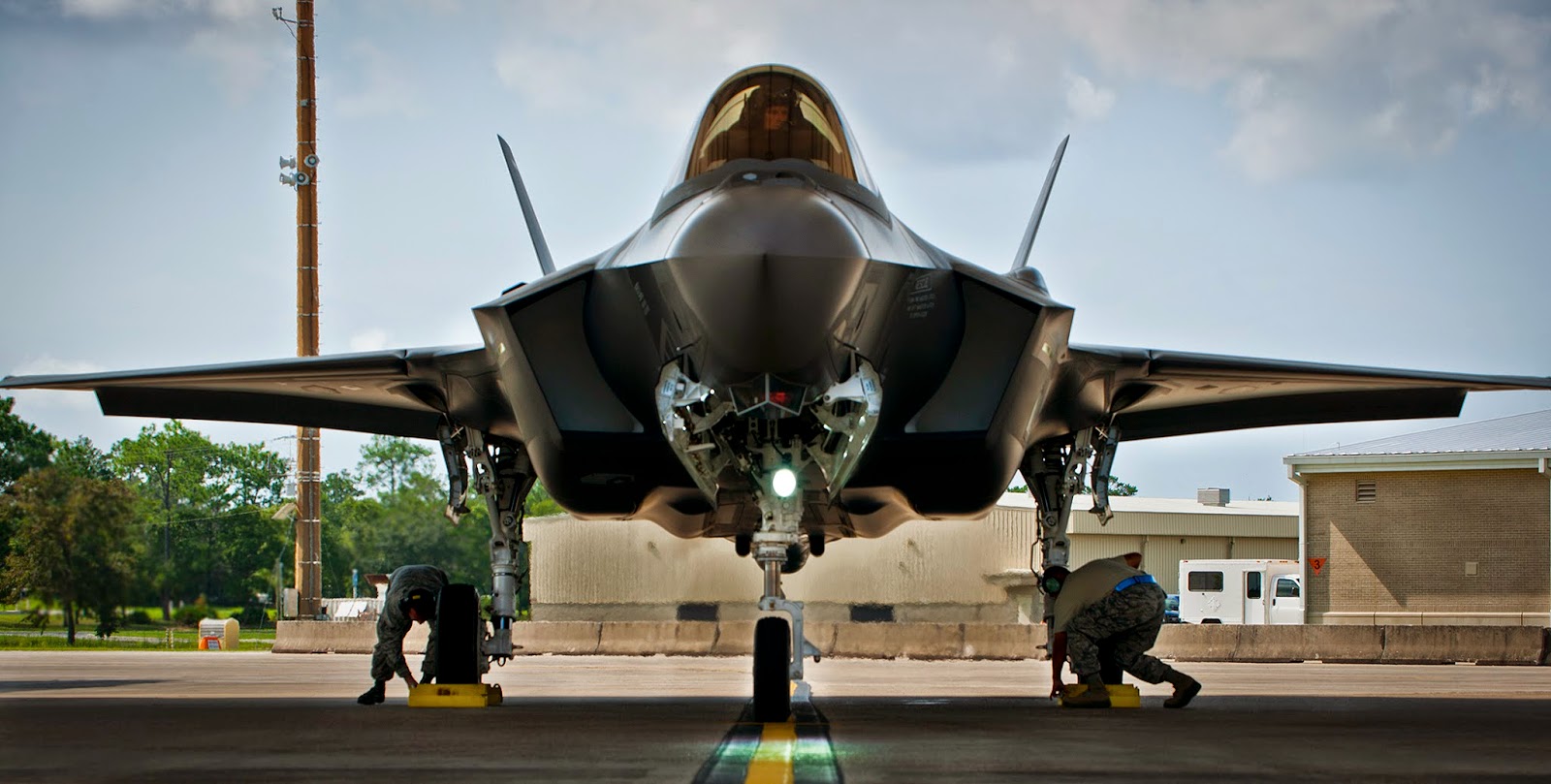Between this site and its progenitor, I have been at this roughly twelve years. What started out as a distraction from PTSD and a way to keep my writing skills semi-competent has turned into... Something else.
I am glad to say I have met some interesting people, both online and in the flesh. Some have gone beyond being acquaintances and have become good friends. Pilots, politicians, technicians, engineers, historians, writers, veterans... Possibly even a Time Lord and lewd anime character (I have yet to be proven wrong on either of these assumptions). I feel privileged and humbled to have interacted with these people.
As hard as it is to believe, some comments directed to me have not been kind. Some have even accused me of bias. Y'know what? THEY ARE ABSOLUTELY RIGHT.
Everyone has bias. Anyone who tells you otherwise is either unaware of it or lying. Biases are a natural byproduct of our own experiences and thought processes. Those with different experiences are likely to have varying biases... And that is okay.
Owning up to being bias is one thing. Identifying them is the real challenge. Many of us simply dismiss our biases as "common sense" and move on. We then accuse others with differing opinions as being being "biased" from more nefarious causes, like bribery or ignorance.
After over a decade, I have seen many of my own countrymen share my misgivings toward the F-35 Lightning II. So why have other Canadians and I developed a bias against the JSF?
The Aircraft:
Something about the JSF just seems to bother some people.
It certainly is not the prettiest aircraft, although it
certainly could have been uglier. At worst, the F-35 can be described as slightly blocky and bulbous. Nothing about it is truly radical or interesting looking. Most would consider it simply generic looking, like a mishmash of the F-16, F/A-18, and F-22.
Perhaps it is the very mission the F-35 has been designed to do.
The F-35 is a multirole fighter, which implies it is just as happy to fly recon, intercept incoming threats, or striking ground targets. However, it is that last mission that people seem uneasy with.
There is a very good reason why the RCAF is all to happy to share photos of CF-18s intercepting Russian Tu-95 bombers; yet rarely show a crater created by a bomb dropped from a Hornet.
Being a stealthy strike fighter implies images of the kind of "first strike" and "shock and awe" tactics utilized to great effect in the Gulf War and beyond. While these sort of mission are vital to any war effort, Canadians do not really view ourselves as this sort of combatant. We see ourselves more as "defenders" that protect ourselves and our allies. We do not see ourselves, nor our military, as the type to "bust down the door" and fire the first shot in a conflict.
There is a very good reason why the Avro Arrow, an interceptor designed to defend Canada's airspace, is fondly remembered while the nuclear-equipped CF-104 is not. Is the F-35 truly what Canada needs?
The Timing:
The Joint Strike Fighter has the unenviable notoriety of being the largest weapon program in history whilst simultaneously coming at time when information and opinion regarding it could be shared in an instant. Previous fighters, like the F-16, had their share of development issues. However, those issues would takes months to become public knowledge, if at al. With the JSF, any sort of sensational incident would find itself on Twitter; often the same day. Ironically for a "stealth fighter" the F-35 has enjoyed more press exposure than possibly any other aircraft.
The Joint Strike Fighter also has the dubious distinction of not having a clear enemy to fight.
Following the end of the Cold War, military budgets were either frozen or cut thanks to the "
peace dividend". This period of spending restraint was short lived, however, thanks to the 9/11 attack and the subsequent "War on Terror".
Initially intended to be a low cost "workhorse"; the F-35 program took advantage of the increased military spending to add more advanced features and capabilities. Soon, it became the most advanced and complicated aircraft of all time... While the western world was fighting an enemy equipped with little more than improvised bombs, Soviet-era rifles, and "
technicals".
For right or wrong, Canada participated in the
occupation of Afghanistan. 40,000 Canadians participated in the mission. 158 Canadians died and many more were wounded; both physically and
mentally. Unfortunately, all of the commitment and sacrifice seemed to have been for naught. When
American forces pulled out of the region, Taliban forces immediately seized control.
The question can certainly be asked: Why does Canada need to buy billions of dollars worth of fighter jets from America to help them fight their un-winnable wars.
If Canada chooses the F-35, it had best make sure it has money left over to procure all of its other procurement goals.
The Politics:
Canada's initial announcement that it would procure 65 "CF-35 Lightning IIs" was met with resounding skepticism. Something about the procurement just seemed wrong.
Indeed, then-Prime Minister Harper's announcement to purchase 65 F-35As for the cost of $9 billion dollars seemed like not enough fighters for what seemed to be both too much money and not enough money at the same time. After public outcry, an
independent audit was done. That audit revealed that cost estimates were entirely unrealistic. The Harper government, known for their fiscal restraint, took every measure to make the F-35 buy appear more affordable than it actually was. Overoptimistic price estimates, along with long term sustainment costs, infrastructure costs, and unit replacement costs being left out entirely meant that Canada would be on the hook for far more than that initial $9 billion.
This was compounded by the fact that the Canadian government of the time did little to no comparison shopping. Other fighters were barely even considered. Instead, the F-35 would be "sole sourced".
Needless to say, this left a bitter taste in many Canadians mouths.
This taste was made all the more bitter by a shift in US politics.
Following a trend that had been developing for years, the American political landscape was becoming more partisan and divided. This culminated in the 2016 Presidential Election when Donald Trump was elected on a platform of nationalism and protectionism. This led to the now infamous
dispute between Boeing and Bombardier, in which neither entity came out ahead.
Despite Trump being elected out of office in 2020, US/Canadian relations
remain damaged. Newly-elected President Biden's decision to axe the
Keystone XL pipeline has not helped.
It is no wonder why some Canadians are not keen on purchasing a product from a nation that seems to have actively gone out of its way to harm our economy.
COVID:
(I initially planned on including this under "Timing"; but I believe it warrants its own discussion.)
The world has become a much different place over the last two years.
The SARS-CoV-2 virus has disrupted lives on a global scale. The virus itself has taken lives, made other (including myself) sick, caused a healthcare crises, disrupted supply chains, and caused shortages for years to come. In typical fashion, government response has been haphazard and ham-fisted. Inconsistent messaging, enforcement, and unpopular mandates have lead to
pushback.
Nowhere is the worker shortage being felt more than in the healthcare sector.
Canada's healthcare system was having issues long before COVID. Years of "belt tightening" austerity measures results in a system just barely able to function normal demand. Combine that with an aging population and their age-related health issues. That same aging population mean many healthcare professionals are reaching retirement age without a sufficient "next generation" to take their place. The system was at its breaking point.
...and then came COVID.
The last two years have DECIMATED the healthcare system.
Hospitals been overwhelmed with patients, a condition made worse by an increasing amount of
healthcare staff being off sick themselves. These shortages are then made up for what little staff remains. Healthcare workers are forced into working overtime far beyond their scheduled hours. Combine this with all the extra stress surrounding COVID and there is little wonder why many are
leaving the career in order to find some semblance of a healthy work/life balance.
No. The healthcare worker shortage is NOT caused by people getting fired for refusing the vaccine. Healthcare worker vaccine rates are quite high and those that refuse are suspended, not fired. Far more healthcare workers are off due to injuries or other health issues caused in the workplace.
The cold, hard truth of it is: Canada's healthcare system needs work. While advanced jet fighters are important to help protect Canadian lives, Canadians are
dying RIGHT NOW due to insufficient healthcare. If Canada needs to splurge, it should do so on healthcare and not fighter jets. While we must always be prepared to defend ourselves, we cannot ignore the
war we are fighting right now.
Final Thoughts:
Am I biased against the F-35 Lightning II? Absolutely. No human is without bias. Like any other human, my biases are formed from my own experiences, knowledge, and sense of priorities. Do I have an irrational bias against the F-35? I do not believe so.
I have no ill will towards Lockheed Martin. Quite the opposite. My father served as aircrew on both the Lockheed P-2 Neptune and CP-140 Aurora. Both aircraft brought him safely home from countless missions over the Atlantic and Pacific Oceans. Lockheed has a enviable legacy, building some of the most iconic aircraft in history.
Nor do I hold any special love for Saab. I have never been to Sweden nor do I have a particular fascination with flat-pack furniture. Like many Canadians, I am sadly ignorant when it comes to Swedish culture, more familiar with the Swedish Chef than any other Swedish historical figure. Maybe I just like to root for the underdog...
My views on the Joint Strike Fighter formed organically. Years of following its development led to some amount of disillusionment. What was initially going to be a "F-22 Lite" turned into something far more controversial. Years of troubled development led to many, like myself, questioning whether or not Canada was getting the "best value" out of its commitment to the program.
As time went by, many other factors came into play. Canada's experience in Afghanistan so soon after the Cold War led to a shift in perception. While equipment is certainly important to the Canadian military; it matters little when you are committing our forces to an unending conflict for unclear reasons with undefined goals.
In a perfect world, the RCAF would get whatever equipment it saw fit to defend Canada and support our allies. Unfortunately, the harsh reality is that Government (taxpayer) budgets are a finite resource. Priorities need to be set. Stealth fighter jets are fantastic kit, but not if it means we have to do without in other departments. Keeping the sky clear makes little sense if the sea is left undefended. If Canada does select the F-35, it must do so with a clear commitment to sustain the fleet for decades to come. Not only that, but doing so must not take away from other defence procurement and sustainment needs.
 |
| Everything I have told you is true... From a certain point of view. |
On a more personal note, because I work in healthcare myself, I see all too well how tenuous the current system is. While healthcare is ultimately the responsibility of each individual province, this does not excuse the Federal Government from doing its part. I believe most Canadians have more interest in their local hospital being open than whether or not the RCAF gets its first choice for fighter jets.
On a local level, I do have a vested interest in the Saab Gripen being declared the winner. Not because Saab promised me a truckload of money (although I certainly wouldn't say "no" to some PR work). Canadian Gripens being built by IMP would bring some appreciated high-paying jobs to the area and would be a boon to the provincial economy. This would in turn provide more funds for the Nova Scotia healthcare system that I work for, making my life easier. Is that selfish? Maybe... But most people do not care about cutting edge stealth fighters when they are left waiting for an ambulance, hospital bed, access to a family doctor, or life-saving surgery.
No decision is made in a vacuum. If Lockheed Martin's bid to Canada makes a convincing case that it is not only the most capable, but cost effective solution; then the F-35 absolutely should replace the CF-18. Otherwise, Canada needs to assess what its true priorities are and ensure taxpayer dollars go to where they are most needed.
Hopefully, we will soon find out.









Comments
Post a Comment